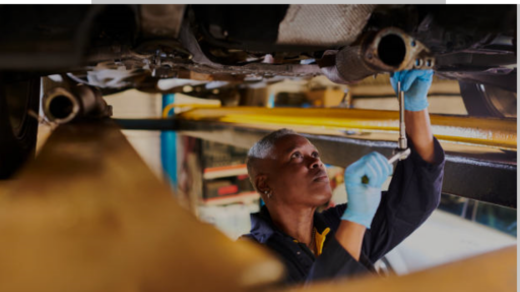The Ultimate Maintenance Checklist To Consider After Your Car Has Been In An Accident

Being involved in a car accident can be a stressful and traumatic experience, but it is crucial to focus on the steps you need to take afterward to ensure the safety and longevity of your vehicle. Proper maintenance is essential in restoring your car to its pre-accident condition and preventing any long-term issues.
Here are six essential tips to maintain your car after it has been in an accident.
1. Inspect For Hidden Damage
While some damage may be obvious after an accident, it is essential to inspect your car thoroughly for any hidden damage. This includes checking underneath the vehicle, inside the trunk, under the hood, and even the brakes.
Even minor dents or scratches can indicate underlying issues that may worsen over time if not addressed promptly. Therefore, make sure that you take your car to an auto mechanic shop for detailed analysis.
2. Seek Professional Assessment
After an accident, it is wise to seek a professional assessment from a certified mechanic or auto body shop. They can conduct a comprehensive inspection to identify any structural damage, mechanical issues, or alignment problems that may have occurred during the accident.
This assessment will provide you with a clear understanding of the repairs needed to restore your car’s safety and performance. Professional guidance ensures that no issues are left unattended.
3. Follow Manufacturer Guidelines
When repairing your car after an accident, it is important to follow the manufacturer’s guidelines for parts and repairs. Using genuine parts and following recommended repair procedures will ensure that your car maintains its safety standards and retains its value.
Cutting corners on repairs may compromise the structural integrity of your vehicle and put you at risk on the road. Therefore, make sure that you follow the guidelines properly and ensure complete maintenance.
4. Address Electrical And Electronic Systems
Modern vehicles are equipped with sophisticated electrical and electronic systems that can be affected by an accident. Even if there is no visible damage, it is essential to have these systems inspected by a qualified technician.
Issues with sensors, airbag deployment systems, or wiring can compromise the safety and performance of your car if left unchecked. Make sure that all electric components are in optimal condition.
5. Monitor Fluid Levels And Performance
After an accident, it is crucial to monitor your car’s fluid levels and performance closely. Check the oil, coolant, brake fluids, and transmission fluids regularly to ensure they are at the proper levels and free from contamination.
Any changes in performance, such as strange noises, vibrations, or warning lights, should be addressed promptly to prevent further damage.
6. Regular Maintenance Checks
Once your car has been repaired after an accident, it is important to maintain a regular schedule of maintenance checks. This includes routine services such as oil changes, tire rotations, and braking system inspections.
Regular maintenance will help identify any potential issues early on and prevent them from escalating into more significant problems down the road.




